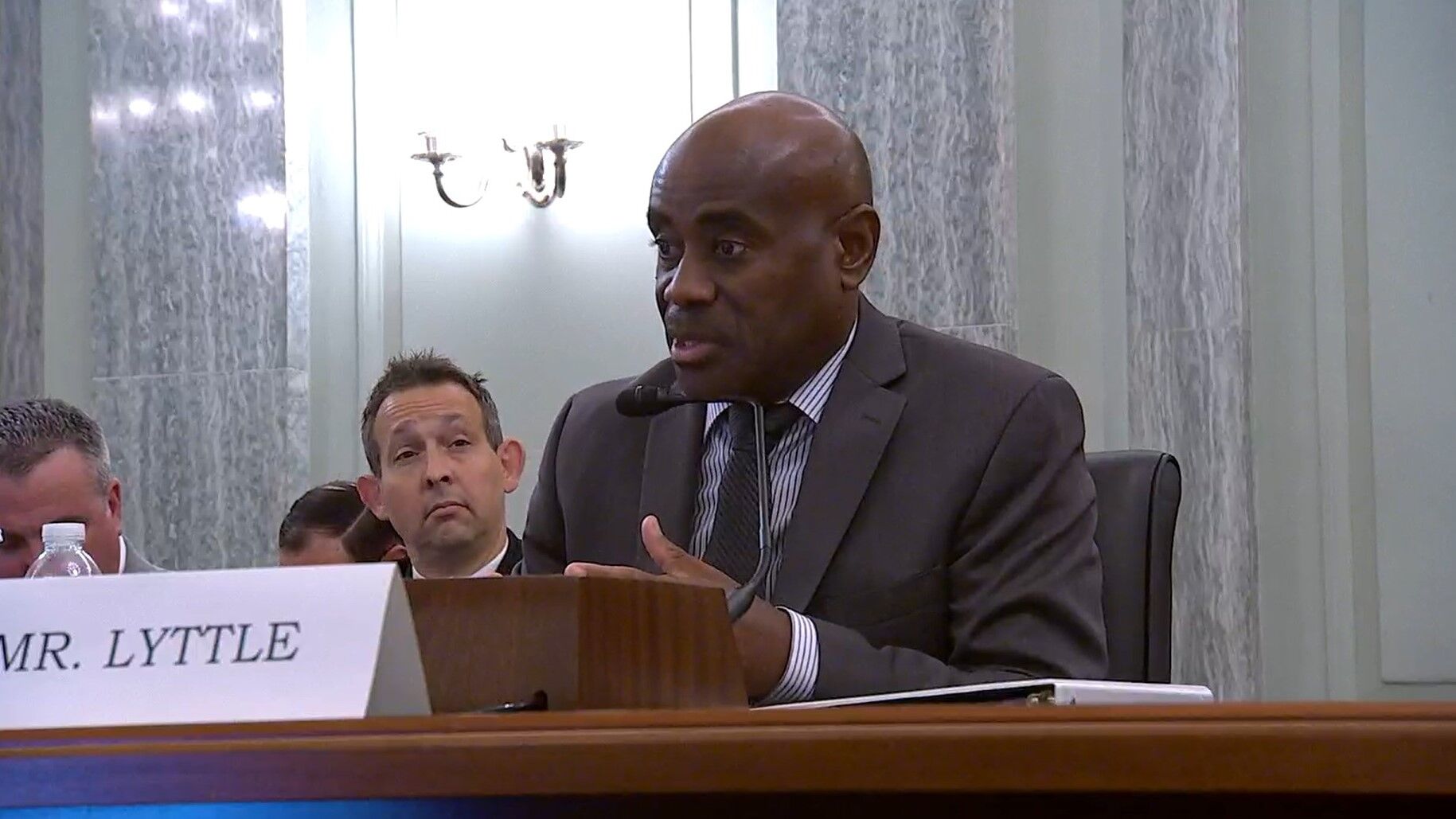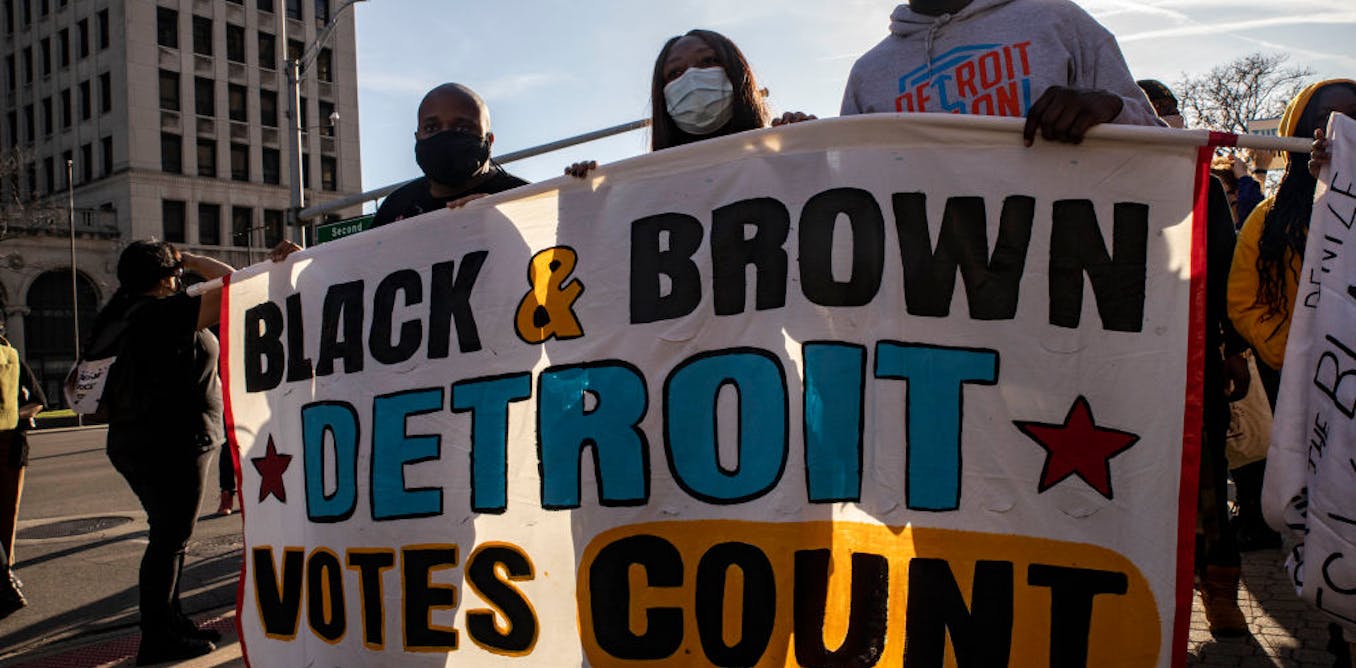- BlackVoter.Org
- Posts
- BLACKVOTER #129
BLACKVOTER #129

Meet Courtland Cox, a civil rights icon and relentless advocate for Black voting rights! At 83, Cox's journey began in 1964 during Freedom Summer, where he faced fierce opposition while helping register Black voters in Mississippi. Today, he’s leading an initiative with the NAACP to mobilize 300,000 volunteers for the 2024 Presidential Election.
**Key Highlights:**
• Joined Howard University’s Student Nonviolent Coordinating Committee at just 19.
• Helped organize the 1963 March on Washington.
• Fought voter disenfranchisement through the Mississippi Freedom Summer Project.
• His efforts emphasize that the battle for voting rights continues every day.
Cox echoes the words of fellow activist Ella Baker: "We who believe in freedom cannot rest," underscoring that the fight for equality is a long, ongoing journey.

The federal government remains on the brink of a shutdown following a failed House vote on a stopgap funding measure. The proposed six-month continuing resolution was rejected 202-220 when some Republicans and Democrats broke ranks over controversial voter ID provisions linked to the plan.
Key points include:
• Speaker Mike Johnson insists tying voter ID laws to funding is essential for election security.
• Critics, like Sen. Patty Murray, argue this is merely political theatrics that could trigger a shutdown.
• The deadline looms large, with October 1 fast approaching, leaving lawmakers scrambling for solutions.
As partisan tensions rise, the future direction of negotiations is uncertain, with both sides needing to find common ground—or face the consequences of a government shutdown. Will they rise to the occasion, or will we witness another chaotic chapter in American politics? Stay tuned!

In a recent debate and campaign trail, Donald Trump has stirred controversy by questioning Vice President Kamala Harris' racial identity, labeling her a "racial opportunist." This tactic reflects a broader strategy aimed at:
• Exploiting Racial Divisions: Critics argue Trump is intentionally creating wedges between different racial and ethnic groups.
• Targeting Black Voters: By emphasizing concerns about immigration and economic resources, Trump seeks to attract a segment of disenfranchised Black voters.
• Historical Tensions: The campaign plays on the complex historical dynamics of racial identity, particularly focusing on who can trace their roots to slavery.
Experts warn that such racially charged rhetoric aims to undermine Harris' authenticity and appeal to a niche audience within the Black community that feels neglected by the Democrats. As the election nears, the effectiveness of these tactics remains to be seen, with many believing Trump's divisive approach may backfire.

The question of whether individuals with criminal records should lose their right to vote remains a controversial topic in the U.S., where an estimated 4.4 million people are disenfranchised due to felony convictions. A recent report by leading human rights organizations sheds light on this issue, revealing some shocking insights:
• Historical Roots: Disenfranchisement laws can be traced back to the post-Civil War era, often targeting Black Americans.
• Global Perspectives: In 73 countries, individuals with felony convictions do not lose their voting rights, contrasting sharply with U.S. practices.
• Racial Disparities: Black Americans are disproportionately affected, with a disenfranchisement rate 3.5 times higher than their white counterparts.
The report calls for reform, highlighting that restoring voting rights not only strengthens democracy but also reduces recidivism by fostering community engagement. It's time to reconsider these policies and ensure everyone has a voice in our democracy.

The Minnesota African American Leaders Forum recently hosted a transformative event aimed at fostering connection and community building among African American leaders nationwide. Held at the Saint Paul Intercontinental Hotel, the gathering was a vibrant display of unity amid shared challenges.
**Highlights included:**
• Insightful discussions led by prominent figures like St. Paul Mayor Melvin Carter and retired Judge LaJune Lange.
• A focus on bridging diverse African American communities across Minnesota.
• Emphasis on addressing pressing issues such as economic disparity and social justice.
• A memorable musical performance by Pat Lacy, energizing the atmosphere.
Keith Baker from Reconnect Rondo underscored the vital importance of unity in tackling community challenges. Mayor Carter echoed this, stating, “If it’s not connecting, it’s not community.” The event ultimately served not just as a forum but as a catalyst for collective action and a celebration of the powerful bonds within Minnesota’s diverse communities.

In Georgia's heated political landscape, the transformative power of historically Black sororities and fraternities—collectively known as the Divine 9—has come to the forefront. With Vice President Kamala Harris, an Alpha Kappa Alpha member, at the helm of the Democratic ticket, these organizations are mobilizing voters like never before, especially in battleground states like Georgia.
Key highlights include:
• The launch of political action committees by sororities aiming to endorse candidates.
• Congresswoman Nikema Williams emphasizes the importance of grassroots community engagement in civic matters.
• Maisha Land’s “Stroll to the Polls” campaign merges cultural celebration with voter turnout, making voting an exciting event rather than an obligation.
This electoral season represents a pivotal moment for the Divine 9, as they navigate their legacy of activism and strive to energize a younger, more diverse voter base. The outcome could redefine their role in American politics for years to come.

As the 2024 election approaches, Kamala Harris's success in Michigan may hinge on addressing the pressing cost of water for poor Black voters in Detroit. This demographic could be pivotal in turning out the vote, essential for Harris to replicate the Democratic successes of 2020. Key insights include:
• Critical Voter Groups: Two African American voter segments exist; strong Democrats are likely to support Harris, but less engaged voters may decide the outcome.
• Historic Turnout Trends: Detroit’s voter turnout rose significantly from 48.6% in 2016 to 50.88% in 2020, impacting Biden's win.
• Water Crisis: Over 27% of Detroit households face potential water shutoffs, spotlighting affordability as a major concern for voters.
• Community Response: Local organizations are advocating for legislation to tie water rates to income, urging Harris to act on these issues.
Harris's ability to connect with these communities and their concerns over living costs may determine her fate in this crucial swing state.

In a thought-provoking analysis, Keith Boykin explores Kamala Harris's strategic approach to addressing race issues amidst a complex political landscape. He highlights the challenges she faces, noting that her every word is scrutinized by both supporters and critics:
• Harris's pro-Black statements are weaponized by Republicans to undermine her credibility with White voters.
• While she condemns harmful rhetoric about marginalized communities, she refrains from fully endorsing reparations due to public opinion dynamics.
• Boykin emphasizes her understanding that policies benefiting Black Americans can also foster societal equity for all.
The article underscores the intricate balancing act Harris must navigate as a Black woman in politics, asserting the importance of a supportive Congress to implement her agenda amid Republican opposition. Ultimately, Harris’s calculated responses highlight her political acumen in a racially charged environment, demonstrating that while not all truths are easy to express, strategic communication is essential for progress.

The Hope Springs from Field PAC is making waves in Georgia and North Carolina, tackling voter ID requirements head-on to ensure everyone can cast their vote. Over the last few years, they've organized more than 237 Free Voter Photo ID days, assisting a remarkable 54,851 voters in obtaining necessary IDs, with a particular focus on marginalized communities.
**Highlights include:**
• Conducted Voter ID events in local Elections offices to minimize disruption.
• 79.7% of participants were African American, showing a strong commitment to empowering minority voters.
• Collaborated with Black churches and local groups to raise awareness about voting laws.
By focusing on grassroots organizing and community relationships, Hope Springs aims to combat voter suppression tactics and promote "super compliance." Their mission is clear: to ensure every eligible voter knows their rights and can participate fully in the democratic process, because every vote truly counts!
